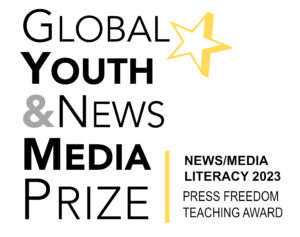
A team of Russian scientists in Antarctica has found an ancient lake buried under more than three kilometres of ice.
The lake – Lake Vostok – has been sealed off from the rest of the world for at least 15 million years.
Scientists think the lake may contain tiny organisms, like bacteria, which are not found anywhere else on earth.
If the organisms exist in the lake, it would be because they have been able to adapt to living in the darkness, saltiness and extreme cold of the hidden lake. In that case, they would likely have developed special features that no other organisms on earth have.
Studying the organisms might help scientists learn more about how life on earth began. It may also give them clues about the possibility of life on other planets.
Conditions in Lake Vostok are similar to those found on a moon that orbits the planet Jupiter. The moon, called Europa, has an icy crust over a liquid ocean. If there are living organisms in Lake Vostok, scientists say it may also mean there is a chance of finding life on Europa.
About Antarctica’s Lakes

There are more than 140 lakes under the ice sheet in Antarctica.
Scientists know they’re there because they show up as dark patches on radar images taken by satellites from space. Lake Vostok, the largest, is about the size of Lake Ontario.
The water in the lakes does not freeze because of the heat from the Earth’s core below them, and the pressure of the thick ice sheet on top, which protects them from the colder temperatures on the surface.
CURRICULUM CONNECTIONS
By Jonathan Tilly
Writing/Discussion Prompt
Scientists hope to use information about Lake Vostok to make predictions about life on Europa. They believe that they can do this successfully because the two environments are similar. What strategies do you use to make good predictions?
Reading Prompt: Reading Fluency
The speed and tone of one’s reading give the listener clues about how to understand the text.
Practice reading today’s article out loud. What speed and tone fit with the text best? Why?
Primary
Read appropriate texts at a sufficient rate and with sufficient expression to convey the sense of the text readily to the reader and an audience (OME, Reading: 3.3).
Junior
Read appropriate texts with expression and confidence, adjusting reading
strategies and reading rate to match the form and purpose (OME, Reading: 3.3).
Intermediate
Read appropriate texts with expression and confidence, adjusting reading
strategies and reading rate to match the form and purpose (OME, Reading: 3.3).
Grammar Feature: Proper Adjectives
There are three things that you will need to know in order to understand proper adjectives. (1) An adjective is a word that tells about a person, place, or thing (noun). (2) A proper noun is the specific name of a noun. (3) A proper adjective is a proper noun used an adjective, to tell about another noun. For example, in the sentence below, “Russian” is a proper adjective because it’s a proper noun used to tell about the noun (scientists).
“A team of Russian scientists in Antarctica has found an ancient lake buried under more than three kilometres of ice.”
Write a proper adjective in the blanks below to complete the sentences.
1. They are _____________________ citizens.
2. She speaks with a tiny _____________________ accent.
3. They always celebrate ____________________ holidays as a family.
4. The _____________________ border guards don’t smile very much.
5. The __________________ Olympic team has a good chance of winning!
*What do these proper adjectives have in common?
____________________________________________________________








